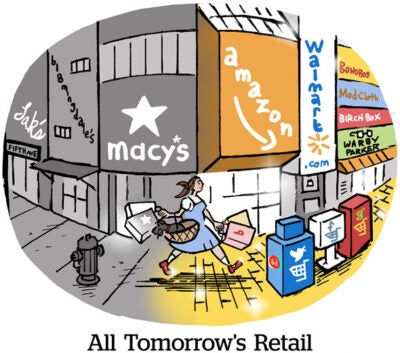Here’s today’s AdExchanger.com news round-up… Want it by email? Sign up here.
Tick Tock
TikTok Shop isn’t doing so hot in the US.
On average, the shopping service is making between $3 million and $4 million per day from US consumers compared with $50 million and $60 million in Southeast Asia, one of its most active regions. This is an even more paltry sum next to the $500 million TikTok Shop is expected to lose in the States this year, a person with direct knowledge of the matter tells The Information.
To be fair, new products aren’t automatically profitable, and TikTok has to spend a bunch of money operating warehouses for fulfillment and delivery if it’s got any chance of stealing share from its biggest ecommerce competitors – especially Amazon.
Speaking of the competition, TikTok’s next move is cutting out its rivals.
It’s shutting its Shopify-synced storefronts feature next month and plans to ban links to external ecommerce sites, including Amazon, so people can only buy items they see on its platform using TikTok Shop.
And to make sure there’s enough inventory, TikTok is attempting to poach merchants that resell items on Amazon. If successful, TikTok could start selling big-name brands on its platform without having to work directly with those brands.
Seems like TikTok considers Amazon its biggest adversary. But then again, who in the world of ecommerce doesn’t?
Honey, They Shrunk The Profits
Earlier this week, Dick’s Sporting Goods joined a chorus of retailers that have used the word “shrink” on their earnings calls to reference lost inventory stemming from causes such as customer and employee thievery and return fraud, Forbes reports.
Target, Ulta, The Home Depot, CVS, Walmart, Nike, Walgreens and TJX: Retailers (which operates T.J. Maxx and Marshalls) are among the other companies that have lamented in recent years that inventory shrink is depressing their profits. All in all, retailers said “shrink” on Q2 investor calls close to 200 times, more than any previous quarter, according to Bloomberg.
Last year, the National Retail Federation said retail shrink was responsible for $94.5 billion in losses in 2021, an increase from $90.8 billion in 2020. The trade org also cited organized retail crime as a growing issue.
But the threat that shrink poses may be overblown. After all, shoplifting is nothing new. In January, Walgreens CFO James Kehoe backpedaled on how much theft figures into its business. “Maybe we cried too much last year,” Kehoe told investors.
Playing Both Sides
Google isn’t hiding its plans to scrape the internet to train AI while cracking down on users that do the same to protect its agreements with music labels, according to The Verge.
Universal Music Group (UMG) inked a deal with Google this week to test Google’s AI music creation tools. The deal could eventually result in a licensing agreement allowing UMG artist recordings to be used to train Google’s AI models. The partnership will also likely involve stricter policing by YouTube over how its users use the music of UMG artists.
For example, UMG recently got YouTube to take down a creator’s AI-generated song that mimicked the voices of two of its artists, Drake and The Weeknd. UMG objected on copyright grounds, despite the fact that voices cannot be copyrighted.
YouTube has to remain on good terms with record labels like UMG. Otherwise, it can’t compete with TikTok, which licenses music for its user-generated videos. In other words, even if AI-generated content on YouTube should be legally protected, YouTube is willing to capitulate to takedown requests.
Meanwhile, Google is crawling the entire internet for its own AI use cases despite publisher claims that this violates copyright. A publisher’s only recourse is to block Google’s bots, which would de-index their sites from search results.
Looks like Google is having its AI-generated cake and eating it, too.
But Wait, There’s More!
Get ready for more streaming price increases, according to Bernstein Research. [Insider]
Speaking of streaming, Netflix’s password sharing clampdown hasn’t stopped sign-ups. Roughly 2.6 million US users signed up in July – 23% of whom opted for Netflix’s ad-supported plan. [Reuters]
But in bad news for streamers, telcos are lobbying world governments to make streaming platforms pay for rising broadband costs. [The Guardian]
To comply with the EU’s Digital Services Act, Snap allows EU users to opt out of content personalization. [Tech Crunch]
How tech billionaires Peter Thiel, Elon Musk, Mark Zuckerberg and Marc Andreessen are reshaping our collective reality. [Vanity Fair]
How Microsoft’s maneuvering brought its Activision Blizzard deal back from the dead. [Bloomberg]
And why not read a book about the history of ad tech for free? [MIT Press Direct]


















